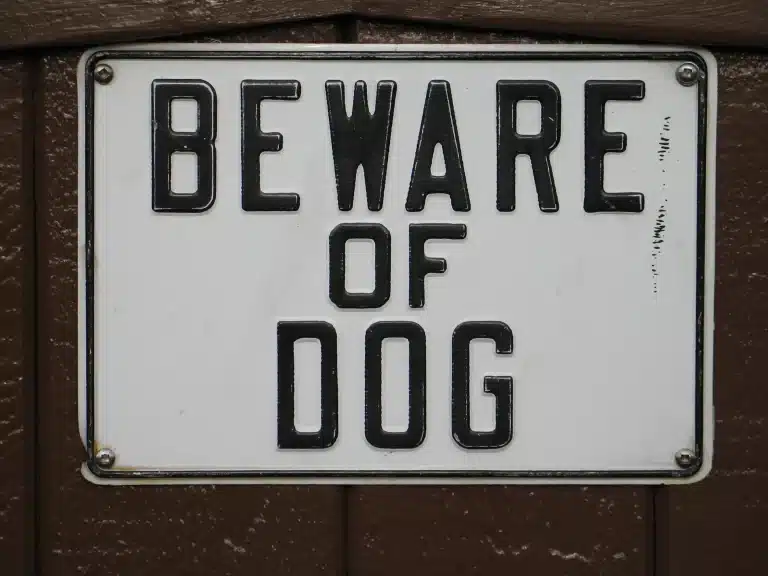How Should I Answer Questions in a Deposition or EUO in Florida?
If you’ve been sued or are under investigation in a Florida personal injury case—such as a car accident, dog bite, or slip and fall—you may be required to give a recorded statement, sit for a deposition, or participate in an Examination Under Oath (EUO).
Each of these situations involves you being questioned under oath. What you say may be used against you in court or settlement negotiations.
This guide will help you understand how to answer effectively—without guessing, overexplaining, or getting tripped up. Florida Civil Counsel, P.A. represents individuals facing lawsuits or legal threats across Florida, from Orlando to Tampa and Miami. Use this resource to feel confident and stay in control.
For additional guidance focused specifically on depositions, see our companion article: Florida Witness Deposition Tips.
What Are a Deposition, Recorded Statement, and EUO?
Although these three procedures are different, they all have one thing in common: you’re under oath, and everything you say matters.
Deposition
A deposition is a formal question-and-answer session, typically part of a lawsuit’s “discovery” phase. You’ll be questioned by the opposing party’s attorney, and a court reporter will record every word. Depositions often take place in an attorney’s office or via video conference. A deposition can last anywhere from 1 hour to several hours.
Recorded Statement
A recorded statement is usually requested early in the case by an insurance adjuster. It may be done over the phone or in person, but your answers can still impact your case significantly. A recorded statement can last anywhere from a few minutes to about an hour.
Examination Under Oath (EUO)
An EUO is often required by your own insurance company as part of a claim review. It is more formal than a recorded statement and is often used when the insurer is questioning coverage or liability. An examination under oath can last about as long a deposition would.
Even if you’re not in a courtroom, your answers during these sessions carry legal weight. The other side is often looking for inconsistencies or admissions that can hurt your case.
Why Are You Being Asked to Testify?
In personal injury cases, the opposing party (or insurance company) wants to:
- Lock you into a version of events
- Evaluate your credibility
- Catch mistakes or inconsistencies
- Gather statements that may later be used to discredit you at trial
It’s not about being fair—it’s about building their case against you. That’s why your answers must be careful, truthful, and limited to what’s asked.
Three Rules That Will Protect You
There are three rules that matter more than anything else during these proceedings:
1. Tell the Truth
You are testifying under oath. Lying, exaggerating, or leaving out key facts—intentionally or not—can seriously damage your credibility and your case. If you are honest, even difficult answers are manageable. But if you’re caught in a lie, even a small one, everything you say can be doubted.
2. Keep Your Answers Short and Direct
This is the most important rule after telling the truth. You are not required to explain or justify yourself. You should answer:
- “Yes.”
- “No.”
- “I don’t know.”
- Or a brief, direct explanation only if necessary.
Do not volunteer extra details. Do not try to fill in silence. Do not try to sound helpful. The more you talk, the more chances there are to say something that gets misunderstood, twisted, or used against you.
Let the other side do the work. If they want more information, they’ll ask for it.
3. Never Guess
Guessing is dangerous. If you’re wrong, your incorrect statement may be treated as intentional dishonesty—even if you were just trying to help.
If you don’t remember something clearly, or if you’re not sure:
Say: “I don’t know,” or “I don’t recall.”
These are perfectly acceptable answers.
If you remember later, your attorney can help you correct the record appropriately.
More Tips to Follow During Your Statement
In addition to the three core rules, here are essential tips to help you stay composed and avoid common traps:
Listen to Every Question Carefully
Make sure you understand exactly what is being asked. Don’t be afraid to ask for clarification:
“I’m sorry, I didn’t understand the question. Can you repeat or rephrase it?”
Never answer a question unless you are sure what it means.
Pause Before Answering
Take a breath before you respond. This gives you time to think and helps you stay calm. It also gives your attorney time to object if necessary during a deposition or EUO.
Don’t Argue or Get Emotional
Even if the question feels unfair or aggressive, keep your cool. Getting defensive, sarcastic, or angry only hurts your case. The opposing side wants to see how you react under pressure—don’t give them a reason to doubt you.
Don’t Joke or Use Humor
Jokes can come across as evasive or inappropriate. What feels harmless in conversation may read very differently in a transcript.
Don’t Try to Memorize Your Testimony
This isn’t a test. You’re expected to answer based on your best recollection—not from memory drills. Reciting answers sounds unnatural and often backfires under questioning.
Common Legal Traps and How to Avoid Them
Here are a few types of questions you may face—and how to respond:
- Leading Questions: These suggest an answer, such as, “Wouldn’t you agree that…?”
→ If you don’t fully agree, say so. Don’t let them put words in your mouth. - Compound Questions: These ask two things at once.
→ Ask for clarification before answering. - “Isn’t it true…” statements: These can box you into a misleading answer.
→ Don’t be pressured. Stick to what you know and clarify if needed. - Hypotheticals or Opinions: You may be asked to speculate or state what you should have done differently.
→ You don’t have to guess. Stick to what happened—not what might have happened.
What If You Make a Mistake?
If you realize during the statement that you’ve made a mistake:
Pause and say: “Actually, I misspoke earlier. What I meant to say was…”
If you realize it after the session, notify your attorney immediately so it can be corrected formally.
What to Bring (or Not Bring)
Unless your attorney tells you otherwise, do not bring or reference documents like:
- Driver’s license
- Medical records
- Insurance policies
- Photos or text messages
If documents are required, you’ll be told in advance. Do not refer to outside notes during questioning unless specifically instructed.
Understanding Florida Law
Florida law takes sworn testimony seriously. Under Florida Rule of Civil Procedure 1.310, depositions may be taken of any party under oath as part of the discovery process. The same standard applies to recorded statements and Examinations Under Oath (EUOs)—what you say under oath can be used in court to support or challenge your credibility.
Inconsistencies between your deposition or statement and later trial testimony can be used to suggest that you’re being dishonest or unreliable. Even small contradictions—especially if caused by guessing or volunteering extra details—can give the opposing side leverage.
That’s why it’s critical to:
- Speak only to what you personally know
- Avoid speculation
- Keep your answers simple, consistent, and truthful
Your statements are part of the official record. They’re not just conversation—they’re legal evidence.
Final Thoughts: Your Words Matter
This may be the most important step in your case so far. What you say, and how you say it, can shape how the other side approaches your defense.
- Be honest.
- Be brief.
- Don’t guess.
- Don’t explain.
- Stay calm.
If you follow the guidance in this blog, you’ll be well-prepared to handle your deposition, EUO, or recorded statement with confidence—even if this is your first time facing something like this.
Facing a Deposition or EUO? We Can Help.
Florida Civil Counsel, P.A. is based in Orlando and defends clients throughout Florida in personal injury lawsuits and insurance claims. Whether you’re dealing with a car accident defense, dog bite defense, or premises liability lawsuit, we can help you protect yourself and move forward.
Schedule a consultation today to discuss your defense options.






